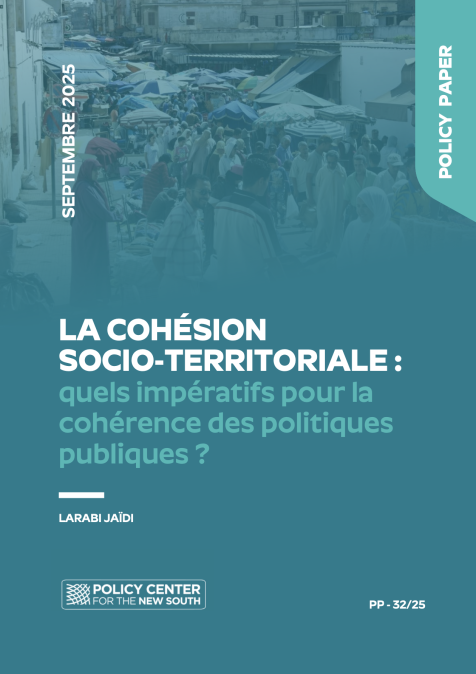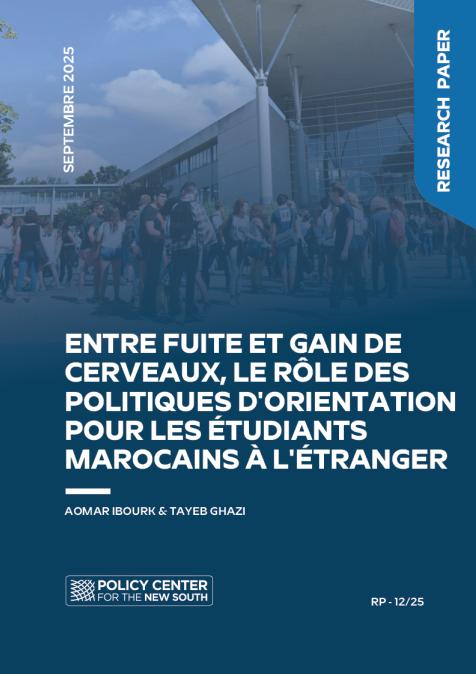Publications /
Opinion
This paper was originally published in Project Syndicate
Fourteen high-income countries have shown how immigration can help offset declining fertility rates and maintain population levels. But with anti-immigrant sentiment on the rise, politicians in these countries face a difficult choice: welcoming foreigners or facing the economic challenges brought about by an aging population.
WASHINGTON, DC – Populations around the world are aging, as mortality and fertility rates fall. While increased longevity represents a remarkable achievement of modern medicine and public health, the steep decline in fertility over the past decades is cause for concern.The collapse in birth rates can be attributed to powerful structural factors – such as urbanization, education gains, and women’s increased participation in the labor market – as well as the perception that childbearing is more manageable with a smaller number of children. As a result, governments’ efforts to reverse the trend have fallen short.
Countries with falling fertility rates eventually reach a demographic tipping point, though, as our recent research shows, and the pace at which different countries are approaching this threshold varies significantly. We divided the world into three groups. The first includes 52 countries – 41 in Africa, ten in Asia, and Papua New Guinea in Oceania – where the fertility rate is still higher than 2.9 children per woman. Projections suggest that the populations of these countries – almost all of which are low or lower-middle income, with the notable exception of Israel – will continue to grow until the end of the century.
The second group comprises 94 countries – located on all continents and covering all income groups – where the population is already falling, such as in Italy and Japan, or is expected to decline at some point this century. Sixty-four of these countries already have fertility rates below the replacement level of 2.1 children per woman, and the others are moving toward this threshold. To date, no government has reversed the trend of falling births after this threshold has been passed.
But it is not all doom and gloom. The third group, comprising 14 high-income countries, demonstrates that immigration can help offset declining fertility rates and maintain population levels. Foreigners account for more than 10% of the population in all of these countries – including the United States, Canada, and Australia – with just one exception (the Czech Republic). Even though deaths will outnumber births in these countries, their populations may continue to grow for some time, given their ability to attract immigrants.
The aging of a country’s population brings two economic challenges. The first is what we call the geriatric fiscal trap. Given that most social security systems pay pre-defined benefits to retirees, spending on pensions tends to outpace contributions as the working-age share of a population falls. Public spending on health also usually grows as a proportion of GDP.
To reduce this fiscal imbalance, policymakers will be driven to increase taxes, especially as elderly voters become a potent political force. With less disposable income, the younger generation is likely to have fewer children, reducing the future tax base and causing the fiscal situation to deteriorate further.
The second challenge is declining productivity. The people advancing scientific knowledge, including inventors and Nobel Prize winners, and the successful entrepreneurs implementing these ideas in the marketplace are generally under the age of 50. Unless we learn how to increase the fluid intelligence of older adults, allowing them to think creatively and solve new problems, population aging could reduce the pace of innovation, resulting in lower productivity and economic growth.
One could imagine new technological advancements, such as artificial intelligence, leading to the development of machines that would enhance and augment human ingenuity. Nonetheless, immigration currently offers the best defense against a graying society; already, it has been a boon for rich countries that are able – and willing – to welcome foreigners. Despite the dire headlines about increased refugee flows and illegal border crossings, our research has shown that immigration contributes to increased economic growth in destination countries, partly by lessening the burden of an aging population.
In the US, for example, the foreign-born population has higher average schooling levels than its native-born population (undoubtedly contributing to the brain drain in their countries of origin). Moreover, the US economy’s extraordinary performance over the past two years would not have been possible without the post-pandemic immigration uptake.
Anti-immigrant sentiment has been on the rise in many rich countries, improving the electoral prospects of far-right parties in Europe and potentially becoming a decisive factor in the US presidential election this November. This poses a conundrum for politicians. They must convince their voters that facilitating immigration benefits all – or risk facing the economic challenges brought about by an aging population.











